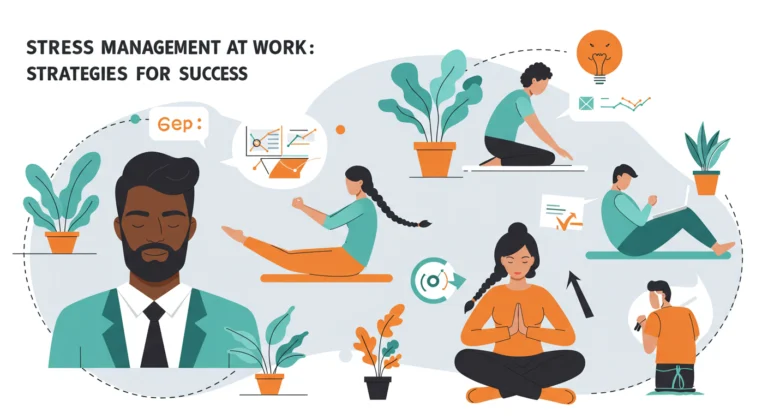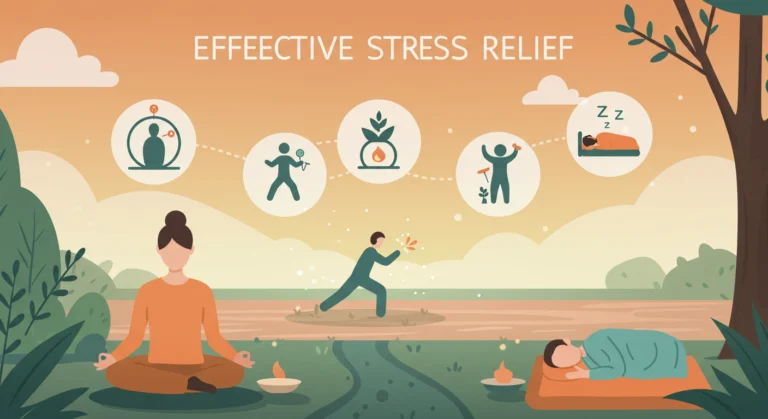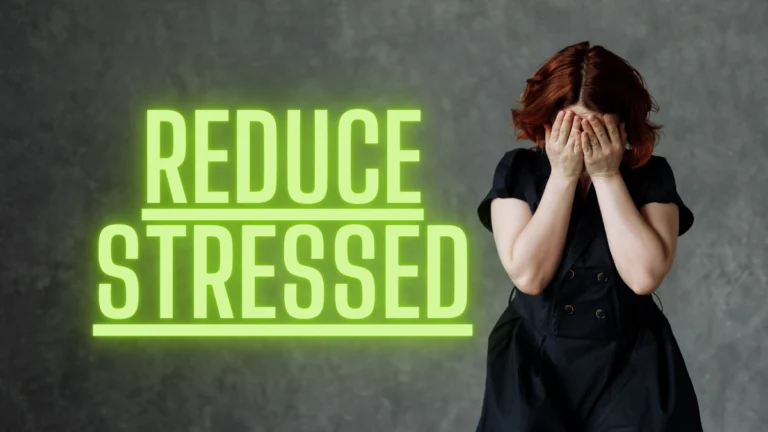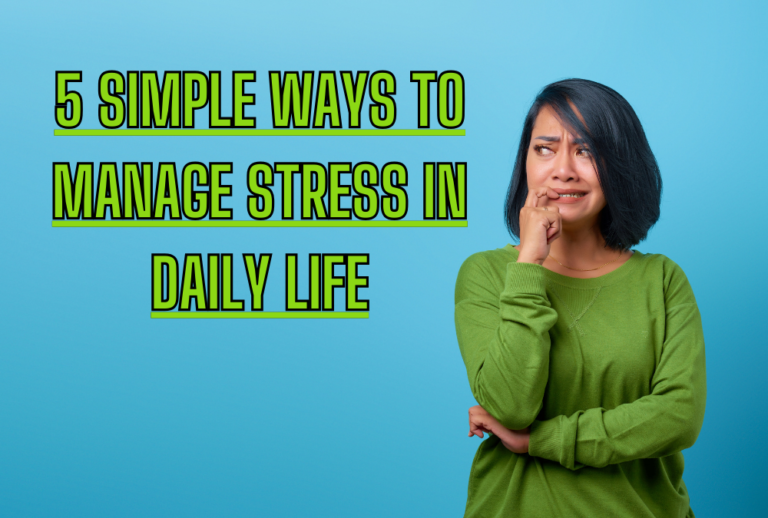Stress Management: Tips for a Calmer Life
Imagine your to-do list keeps growing every morning. Deadlines are always near, and your phone never stops buzzing. You’re not alone. A 2023 APA survey found 68% of Americans feel stress every day. Learning to manage stress is key to finding balance.

Key Takeaways from Stress Management
- Stress management helps build resilience against daily pressures.
- Effective strategies focus on healthy responses, not eliminating stress.
- Small changes today can reduce long-term mental and physical strain.
- Research-backed practices like mindfulness and exercise are proven tools.
- Personalized plans work best for lasting stress reduction.
Table of Contents
- Understanding the Impact of Stress on Your Body and Mind
- Essential Stress Management Techniques for Daily Life
- Mindfulness and Meditation for Stress Reduction
- Physical Approaches to Coping with Stress
- Creating a Stress-Resistant Lifestyle
- Conclusion: Building Your Personalized Stress Management Plan
- FAQ
- What is stress management?
- How can I identify my personal stress triggers?
- What are some effective stress management techniques?
- How does mindfulness help with stress management?
- What role does exercise play in stress reduction?
- How can sleep affect my stress levels?
- What lifestyle changes can help create a stress-resistant environment?
Understanding the Impact of Stress on Your Body and Mind
Stress doesn’t just feel overwhelming—it changes how your body and mind work. Knowing how these changes happen is crucial for stress reduction and better coping with stress. Let’s explore the science behind your stress responses.
How Your Body Responds to Stress
When stress hits, your body goes into “fight or flight” mode. This causes:
- Rapid heartbeat and breathing
- Muscle tension
- Weakened digestion
- Increased cortisol and adrenaline hormones
The Difference Between Acute and Chronic Stress
Stress isn’t always bad. Here’s how to tell the difference:
| Acute Stress | Chronic Stress |
|---|---|
| Short-term (hours/days) | Lasts weeks or months |
| Caused by immediate challenges | Stems from ongoing issues |
| Can boost focus temporarily | Leads to burnout, anxiety, or illness |
Recognizing Your Personal Stress Triggers
Find out what stresses you out. Common triggers include:
- Work deadlines or job insecurity
- Money worries
- Family or relationship conflicts
- Health concerns
Keep a journal of your stress. Note when stress peaks and what’s happening. This helps you tailor your coping with stress plan.
Essential Stress Management Techniques for Daily Life
Starting with small, consistent actions is key to managing stress. These strategies help you build resilience against daily pressures. You don’t need to change your whole life to feel better.
“Even five minutes of intentional breathing can reset your nervous system’s response to stress.” – Dr. Susan Carter, Stress Management Institute

- Reframe Negative Thoughts: Challenge anxious patterns by asking, “Is this thought helpful?” Replace “I can’t handle this” with “I’ll tackle this step by step.”
- Set Boundaries: Learn to say no to non-essential tasks. Use phrases like, “I need to prioritize my current responsibilities.”
- Time Blocking: Break tasks into 25-minute focused intervals (Pomodoro Technique) to avoid overwhelm.
| Technique | Time Commitment | Key Benefit |
|---|---|---|
| Deep Breathing | 2–5 minutes | Activates parasympathetic nervous system |
| Journaling | 5–10 minutes | Identifies recurring stress triggers |
| Walking Breaks | 10–15 minutes | Boosts mood through endorphin release |
Use these techniques daily and take a 5-minute evening check-in. Note what worked and what to tweak. Small, repeated efforts create lasting habits. Remember, it’s the consistency that counts, not perfection.
Mindfulness and Meditation for Stress Reduction
When stress feels too much, try mindfulness to take back control. These practices focus on the now, helping you let go of worries about tomorrow or yesterday. By adding mindfulness to your daily life, you can find lasting stress relief.

Getting Started with Basic Mindfulness Practices
Start with simple exercises to improve your skills:
- Body scan meditation: Lie down and scan your body from toes to head, noticing feelings without judgment.
- Mindful walking: Pay attention to each step, the ground, and your breath’s rhythm.
- 5-4-3-2-1 grounding technique: Name five things you see, four you feel, three you hear, two you smell, and one you taste to stay present.
Breathing Exercises to Calm Your Nervous System
Try these breathing patterns to calm your nervous system:
- 4-7-8 Breathing: Breathe in for 4 seconds, hold for 7, then breathe out for 8. Do this 4 times.
- Box Breathing: Breathe in (4 sec), hold (4 sec), breathe out (4 sec), then hold empty lungs (4 sec).
- Belly Breathing: Put a hand on your stomach and focus on its movement with each breath.
Create a Sustainable Routine
| Challenge | Solution |
|---|---|
| “No time!” | Start with 2-3 minute sessions, even during commercial breaks |
| “Can’t quiet my mind” | Use guided audio or focus on a mantra like “peace” or “calm” |
| “Falls off track” | Schedule sessions like any important appointment |
Technology Tools for Mindfulness
Apps like Headspace, Calm, and Insight Timer offer guided sessions. Many have free beginner courses. Use your phone to remind you to practice every day.
Physical Approaches to Coping with Stress
Your physical health affects your mental state. Meeting your body’s needs can boost your stress management efforts. These methods are easy to fit into any lifestyle.
The Stress-Relieving Benefits of Regular Exercise
Exercise lowers cortisol, the stress hormone. Here are some ways to get moving:
- Aerobic exercise: Do 30 minutes of brisk walking, cycling, or swimming, 5 days a week.
- Strength training: Aim for 2-3 sessions weekly to build strength and release endorphins.
- Flexibility work: Practice yoga or stretching daily to relax your muscles.
How Sleep Quality Affects Your Stress Levels
Poor sleep can make stress worse, creating a tough cycle. Focus on these sleep habits:
- Keep a regular bedtime and wake time, even on weekends.
- Make your bedroom dark and cool to signal it’s time to sleep.
- Stay away from screens an hour before bed to avoid blue light.
Nutrition Strategies That Combat Stress Hormones
What you eat affects how you handle stress. Include these foods in your diet:
- Eat leafy greens and nuts for magnesium.
- Choose fatty fish or flaxseeds for omega-3s.
- Enjoy dark chocolate (70%+ cocoa) for antioxidants.
But avoid too much caffeine, alcohol, or sugary snacks, as they can raise cortisol.
Quick Physical Techniques for Immediate Stress Relief
When stress hits, try these quick actions:
“Your breath is a tool you can use anywhere,” says Dr. Jane Smith, a wellness expert. “Combine it with movement for faster relief.”
Here are some steps to take:
- Try progressive muscle relaxation: Tense and release muscles from toes to head.
- Do neck rolls or shoulder shrugs to release tension.
- Press the thumb and index finger on the web of your other hand to calm your nerves.
Creating a Stress-Resistant Lifestyle
Building a stress-resistant lifestyle means moving from quick fixes to lasting habits. Stress management tips help, but true stress reduction comes from changing your daily life and views.
“Resilience isn’t about avoiding stress—it’s learning to thrive with it.”
Stress hardiness comes from three key traits: sticking to goals, controlling reactions, and seeing challenges as growth. Focus on what you can change, not the outcomes.
- Commit to proactive goals instead of passive reacting
- Reframe problems as temporary or solvable
- Practice daily mindfulness to stay grounded
Setting clear work-life boundaries is key. Work set hours and turn off devices by 8 PM. Add natural light, plants, and calming colors to lower stress hormones. Even small changes, like organizing your desk, can help focus.
Make time for creative activities like painting, cooking, or dancing once a week. These activities boost dopamine, fighting stress. Choose daily actions that align with your values to reduce stress.
Begin with small changes: pick two new habits this week. Over time, these habits will protect you from life’s pressures. True stress reduction is a journey, not a quick fix.
Conclusion: Building Your Personalized Stress Management Plan
Stress management works best when it fits your life. Think about mindfulness, exercise, sleep, and food to see what fits you. Start with one or two methods, like a short walk and breathing exercises.
Keep track of how these methods change your mood and energy. Use a journal or apps for mental health to see patterns. If something doesn’t work, change it. What works today might not tomorrow.
If stress is too much, talk to a therapist or counselor. They can help with things like cognitive-behavioral therapy. Support groups also offer valuable experiences for managing stress.
Managing stress is a journey, not a quick fix. Small steps today build strength for the future. Remember, it’s okay to make mistakes. Progress, not perfection, is what matters.
And to learn more about how to improve your life, check out other articles on TipsAndWellness.com
You can also search for more related content on Wikipedia.org
FAQ
What is stress management?
Stress management is about using techniques to handle stress in your life. It aims to make you respond better to stress, improving your well-being.
How can I identify my personal stress triggers?
Start by keeping a journal of when you feel stressed. Note what happened and how you reacted. This will help you see patterns and what causes your stress.
What are some effective stress management techniques?
Good techniques include changing negative thoughts and managing your time. Setting boundaries and connecting with others also helps. Adding physical activities and mindfulness can reduce stress a lot.
How does mindfulness help with stress management?
Mindfulness focuses on the now, reducing worries about the past or future. Practices like breathing exercises and meditation calm your nervous system, lowering stress.
What role does exercise play in stress reduction?
Exercise is great for reducing stress. It lowers stress hormones and boosts mood. Whether it’s running or lifting weights, exercise fights stress well.
How can sleep affect my stress levels?
Good sleep is key to managing stress. Bad sleep can make stress worse, creating a cycle. Improving your sleep can help lower stress.
What lifestyle changes can help create a stress-resistant environment?
To resist stress, balance work and life, set boundaries, and make calm spaces. Adding hobbies and fun activities to your life also helps build resilience against stress.
Discover more from Tips and Wellness
Subscribe to get the latest posts sent to your email.






